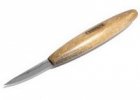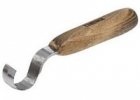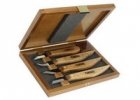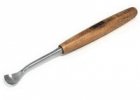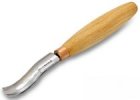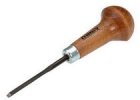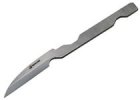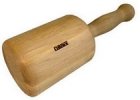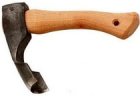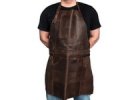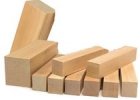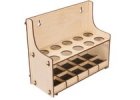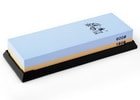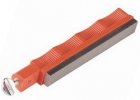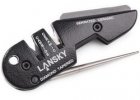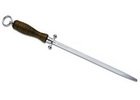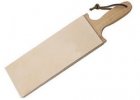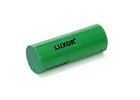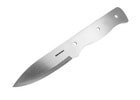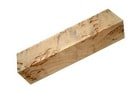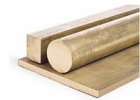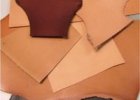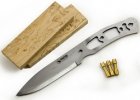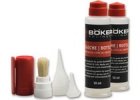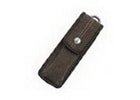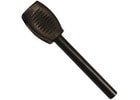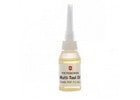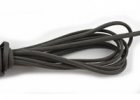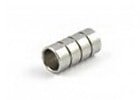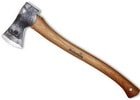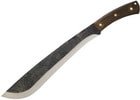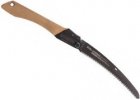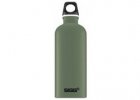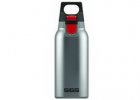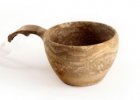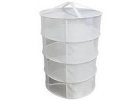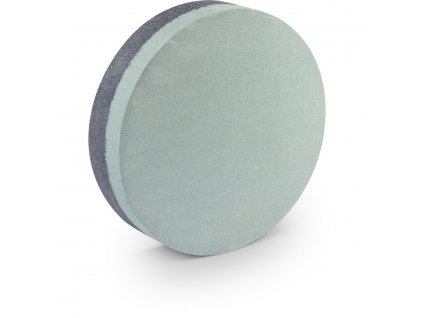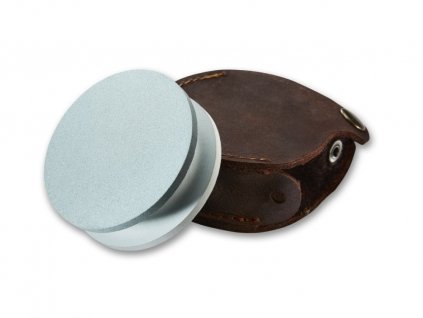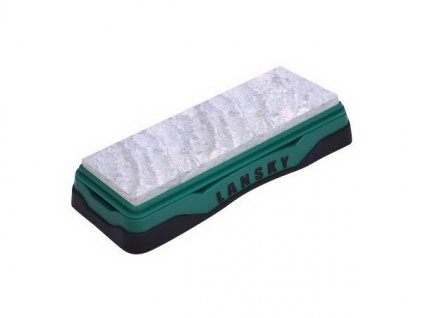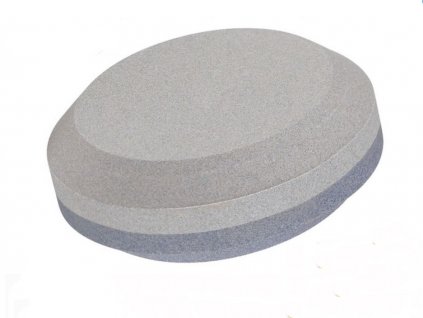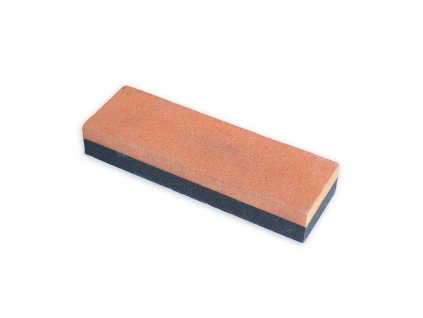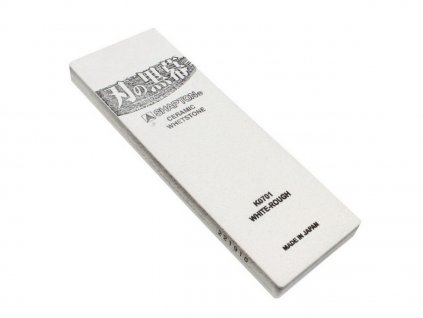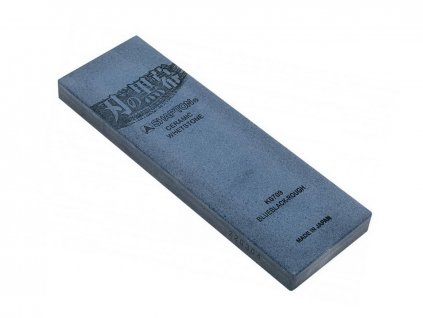Sharpening stones
A sharpening stone is the perfect tool for sharpening your knives. Anyone can effectively sharpen knives on a stone, and with a bit of practice, you'll be able to sharpen your knives at home easily and quickly. When buying a grinding stone, pay attention to the grain size, usually referred to as "grit." A lower number indicates a coarser grinding stone, while a higher number signifies a finer grit on the stone.
For classic sharpening of significantly dull knives, reach for whetstones with a lower grit (180 to 600). You will need sharpening stones with higher values (600 to 3,000) to continuously fine-tune the knives and maintain perfect cutting properties. You can use the highest grit values (3,000 to 10,000) to hone and polish already sharp knives and smooth the edge to absolute perfection.
Diamond sharpening stones are known for their durability and quick sharpening. Water sharpening stones (called also whetstones) are among the highest quality sharpening stones. The pinnacle of quality are Japanese sharpening stones, which also belong to water stones. We recommend Taidea whetstones, which offer an unbeatable ratio between price and quality. For beginners, it is recommended to get double-sided (combination) whetstones, thanks to which you will have two stones of different grits at home.
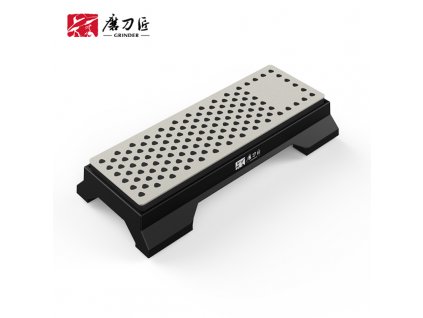
Double-sided coarse and medium diamond sharpening stone with 360 and 600 grit. Abrasive: diamond. Dimensions: 180 x 60 mm. Ideal sharpening stone for both home and professional...
Sharpening stones by origin
In the beginning, you will have to decide whether a natural or synthetic whetstone is more suitable for you. Both groups offer many advantages, but also disadvantages that can affect the sharpening of knives.
Synthetic whetstones are currently most commonly used for knife sharpening. They are usually made of Aluminium Oxide (Corundum) and are characterized by considerable hardness and reliability, as corundum is the second hardest material after diamond. Compared to natural stones, synthetic stones have a precise grain number.
Natural sharpening stones represent a wide group with different properties. Rozsutec stones from Slovakia are characterized by high grain size, extreme hardness, and durability. Arkansas whetstones are characterized by extreme durability and have four types of different grits. Natural Japanese stones are now very rare, as the quarries in Japan are largely exploited. A disadvantage of natural whetstones can be the inhomogeneity of the grain, which can lead to uneven grinding results.
Basic types of sharpening stones
Diamond whetstones are classified among synthetic stones and are known for their resistance to damage and faster sharpening of knives. Knives are sharpened dry without applying water or oils.
Water sharpening stones also called whetstones are among the highest-quality sharpening tools. Always use water stones with water. Some just need to be immersed in water for a short while, others require staying in the water for a few minutes. Keep in mind that the stone should not dry out during sharpening.
Combined sharpening stones consist of two or more synthetic stones of different grain sizes and functions. You can sharpen the blade with one of the stones, smoot sharpen with the second, and then hone the blade with the third stone. The only disadvantage is the higher initial investment, which, however, will pay off several times over in the long run.
Oil whetstones have one big advantage over water stones, and that is that they don't wear out so quickly and will last you for many years. For oil grinding stones, it is necessary to use honing oil - a few drops are enough.
.png)
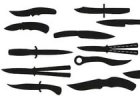
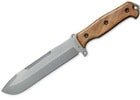
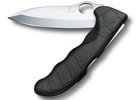
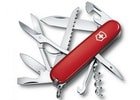
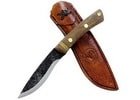
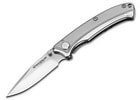
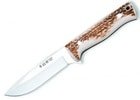
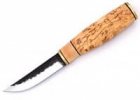
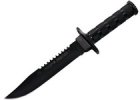
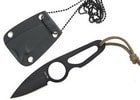
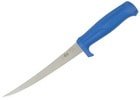
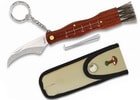
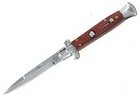
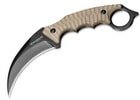
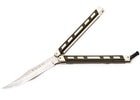
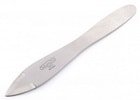
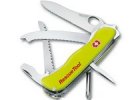
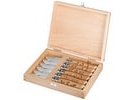
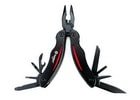
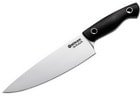
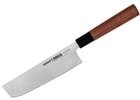
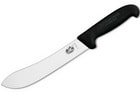
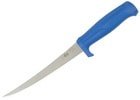
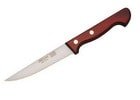
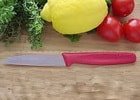
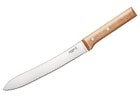
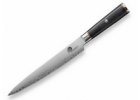
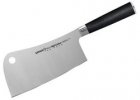
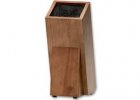
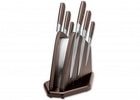


-min.jpg)





